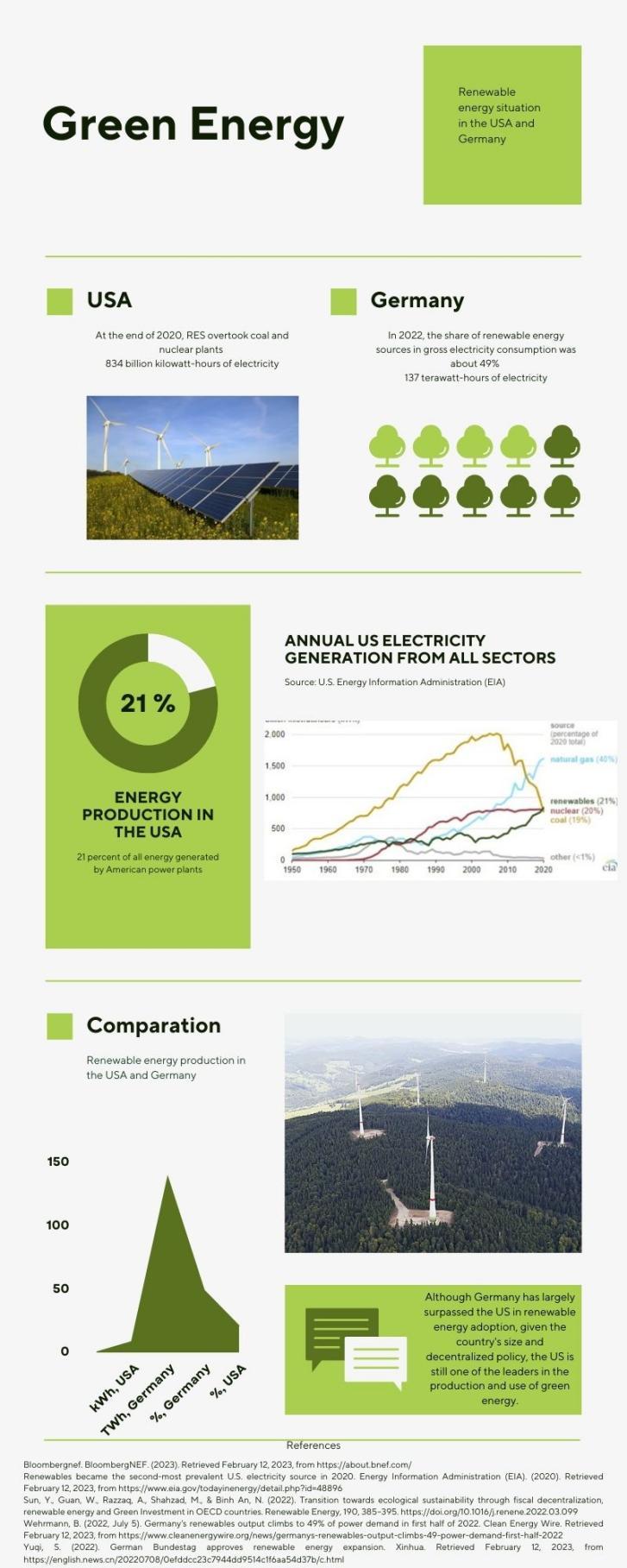In the US, alternative energy policy is decentralized like many other policies. It causes the main difference between the countries as Germany adopts a common policy for the transition to green energy, while America leaves the choice of policy to the states (Sun et al., 2022). However, both countries aim to increase the use of renewable energy sources; therefore, they provide political support for this development. It is expected that companies involved in the development of green energy will actively develop and receive additional support from the state in order to achieve the preservation of the environment, as one of the main values that dominate today in the United States.
Green energy sources cover wind farms, solar farms, hydroelectric power plants, and biomass and geothermal power plants. At the end of 2020, renewable energy sources in the United States, for the first time in history, overtook coal and nuclear plants in terms of generation, as evidenced by the US Energy Information Administration (Renewables, 2020). Combined, they generated 834 billion kilowatt-hours of electricity — 21 percent of all energy generated by American power plants (Renewables, 2020). The German Bundestag, for example, has passed a legislative package to expand the use of renewable energy in Germany massively (Yuqi, 2022). Green Electricity in Germany, that is, green electricity generated from wind and solar, plays a key role. As a result, about 49% of energy was produced by renewable sources (Wehrmann, 2022).
The progress of renewable energy sources, such as wind and solar, is accelerating in the US and worldwide. Thus, almost every second kilowatt-hour of energy in Germany is green. Although Germany has largely surpassed the US in renewable energy adoption, given the country’s size and decentralized policy, the US is still one of the leaders in the production and use of green energy.
References
Renewables became the second-most prevalent U.S. electricity source in 2020. (2020). Energy Information Administration (EIA). Web.
Sun, Y., Guan, W., Razzaq, A., Shahzad, M., & Binh An, N. (2022). Transition towards ecological sustainability through fiscal decentralization, renewable energy and Green Investment in OECD countries. Renewable Energy, 190, 385–395. Web.
Wehrmann, B. (2022). Germany’s renewables output climbs to 49% of power demand in first half of 2022. Clean Energy Wire. Web.
Yuqi, S. (2022). German Bundestag approves renewable energy expansion. Xinhua. Web.
Appendix A
